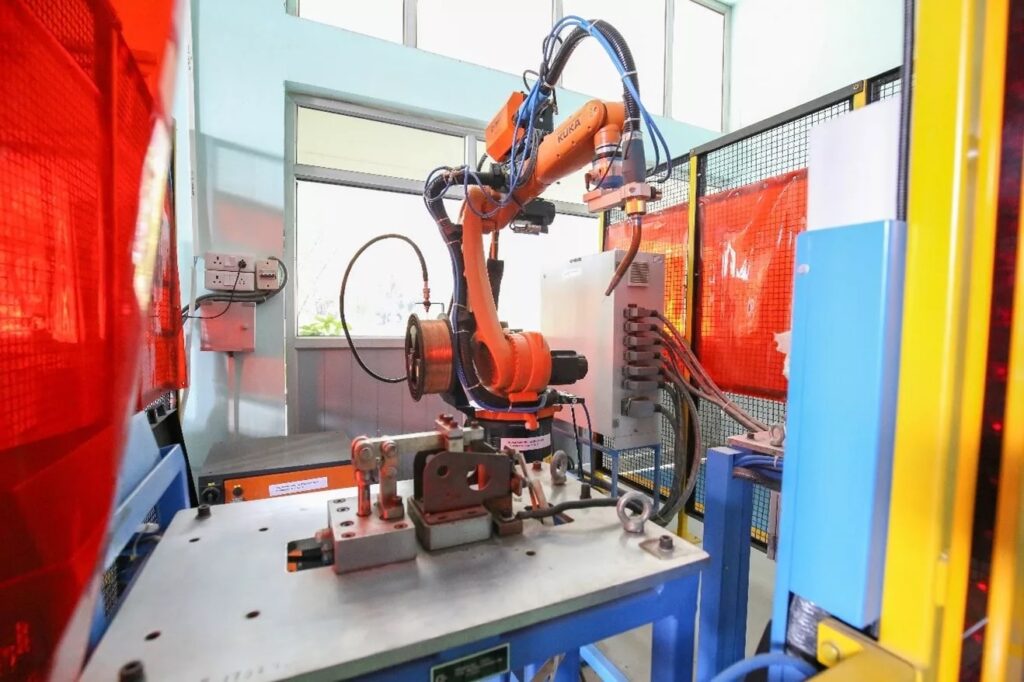A BTech in aerospace engineering is a four-year undergraduate programme that has been designed to equip students with the knowledge and skills they need to design, develop, test, and maintain aircrafts, spacecrafts, and other related technologies. The course offers a blend of theoretical principles and practical training, covering both atmospheric flights and space flights. A BTech in aerospace engineering prepares students for succeeding in diverse careers in the aerospace and allied industries. It is important that you first understand what aerospace engineering is and what it entails, so you can make an informed decision.

What Is Aerospace Engineering?
Aerospace engineering is a specialised field of engineering that revolves around creating technologies and solutions for air and space travel. The field of study draws upon the principles of mathematics, physics, and material science, and teaches students about materials, avionics, structural design, propulsion, and aerodynamics.
Aerospace Engineering Branches
Aeronautical Engineering: This branch focuses on flight-capable vehicles and crafts, like helicopters, fixed-wing airplanes, drones, and missiles, that operate within the atmosphere of the Earth.
Astronautical Engineering: This branch deals with flight-capable vehicles and spacecrafts, like launch vehicles, rockets, satellites, and space stations, that have been designed to travel beyond the Earth’s atmosphere.
The Importance of Innovation and Sustainability in the Aerospace Sector
Engineers working in the aerospace sector strive constantly to devise solutions for improving energy efficiency, environmental performance, and safety. Cutting-edge developments, like sustainable aviation technologies, alternative propulsion systems, and lightweight composite materials, are shaping the future of the aerospace sector, and a BTech degree can build a strong foundation for students to not only participate in these innovations but even lead them.
Curriculum and Course Structure
Completing a BTech degree from aerospace engineering colleges takes at least four years and is divided into eight semesters. The course typically starts with foundational subjects, including physics, chemistry, engineering mathematics, and computer programming. With time, the curriculum moves on to cover core topics, like aircraft propulsion systems, aircraft and spacecraft structures, computational fluid dynamics, aircraft propulsion systems, flight mechanics and stability, orbital mechanics, and space technology. Laboratory work is also a crucial part of the aerospace engineering course.
Post-Graduation Career Opportunities
BTech graduates from aerospace engineering colleges have the choice to pursue diverse career opportunities in multiple industries, like space agencies, research institutions, aircraft manufacturing, and defence organisations. Aerospace engineers are generally involved in the design, development, testing, and manufacturing of various aerospace systems. Potential career paths that you can choose from after completing a BTech in Aerospace Engineering include working at government agencies, like ISRO, and working at private companies, like SpaceX, in the following job roles:
- Aerospace Engineer
- Astronautical Engineer
- Design Engineer
- Flight Test Engineer
- Systems Engineer
- Analysis Engineer
- Maintenance Engineer
- Structural Design Engineer
- Research Scientist
Scope for Higher Education
After completing their BTech in aerospace engineering, many students choose to go for their master’s degrees or for research programmes in specialised areas, like propulsion, avionics, and space systems engineering. These paths can help students further enhance their technical expertise, offering them opportunities to take up niche research positions or leadership roles. Students can also broaden their career prospects and boost their employability with certifications in simulation tools, safety compliance, and project management.
A BTech in Aerospace Engineering offers a dynamic and future-focused education for those passionate about aviation and space technology. With a curriculum that balances theory, hands-on learning, and industry exposure, it prepares graduates for impactful careers in one of the most innovative engineering domains. For aspiring engineers, it is a gateway to designing and building the technologies that connect and explore our world.


























